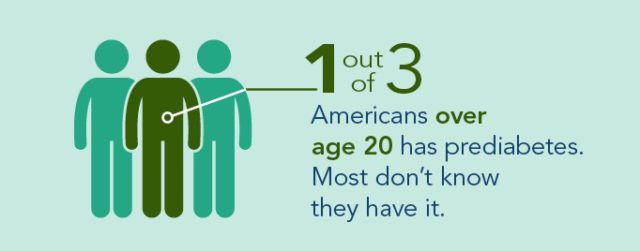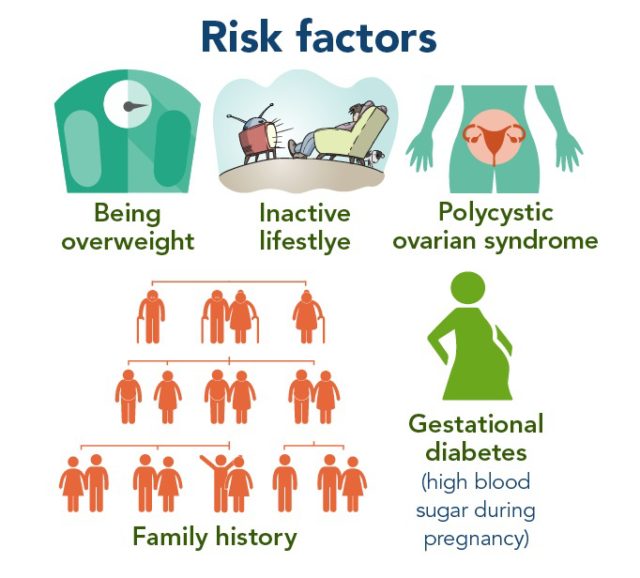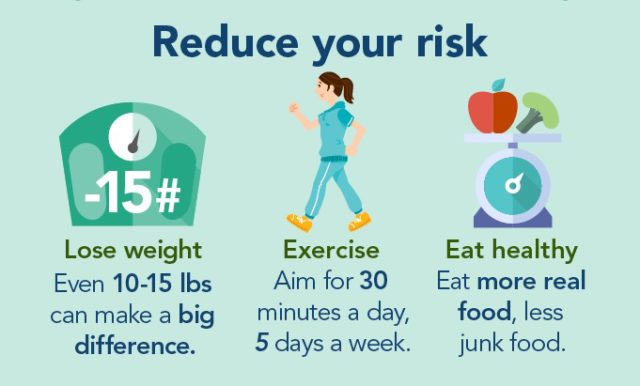Contents
Balancing Diabetes By Custom Personal Management Plan
A new study shows, the cultural influences have an important role in proper management of the disease.
The study was presented at the annual meeting of the American Diabetes Association.
“Creating a personal treatment plan based on nutrition, eating habits and genetics help patients balance sugar levels and optimal weight more quickly,” says clinical dietitian and explains how to build a program like this.
29.1 million people in the United States have diabetes. That’s about 1 out of every 11 people.
86 million people, more than 1 out of 3 American adults have pre-diabetis.
1 out of 4 people do not know they have diabetes.
This alarming data on the extent of Diabetes published on the World Diabetes Day event.

Over 415 million adults worldwide have diabetes, and the number is expected to rise to 642 million by 2040.
Morbidity rate of diabetes is rising steadily in all groups of age.
Morbidity is directly linked to the increasing rate of people in high risk groups such as obesity and lack of physical activity.
In addition, increased life expectancy puts every third adult over age 65, into higher risk of developing of diabetes.
Diabetes: Lack of Proper Nutrition Caused by The Disease
People who are in increased risk of Diabetes are:
- Adult overweight people,
- People with kidney disease,
- Older people in general, because of aging and decreased ability to secrete insulin in the pancreas.
Those who suffer from diabetes know that this is serious disease that must be well-managed.

To help people manage it correctly, experts recommend multidisciplinary care.
It includes:
- Regular meetings with specialist from the medical community (doctor, nurse, dietitian),
- Exercise
- Proper diet
- Maintain a healthy weight to make sure that diabetics do not develop nutritional deficiencies in present and in the future.
Indeed, diabetes and nutritional deficiencies sounds a contradiction in terms, but in fact this is a common phenomenon.
There may be a number of reasons for that, such as:
- The use of medications for diabetes – Metformin for example causes vitamin B 12 deficiency,
- Diabetes itself is related to the relative lack of vitamin D,
- “Diet diabetics” – diet required hospital uphold restricts them in a variety of foods and therefore creates a risk of nutritional deficiencies.
Do not forget that parallel rise in age is accompanied by a decrease in appetite as well.
There is significant drop in preparing and cooking a variety of foods in diabetics because of aging.
Also absorption of various nutrients drop significantly especially in a long-standing diabetes.

All of these can lead to short and long term decline in muscle mass, which leads directly to a decrease in the function of immune system, and muscle strength and function.
Once the muscle is weakened tend to have more difficulty performing everyday tasks more crashes, injuries and so on.
This fact characterizes medical condition known as frailty – multi-system physical decline, expressed in functional deterioration and injuries tend to over-stress situations.
Such a situation requires proper nutritional support.
To help in management of diabetes, individual custom-tailored programs for diabetics are offered by healthcare service providers around the world.
That way, algorithms are used as disease management tool: a series of measures and guidelines.
Research: Custom Diabetes Management Plan for Quick Balance
A new study presented at the annual meeting of The American Diabetes Association, clearly showed that creating a custom-tailored treatment plan for each diabetic is the most effective way to restore the balance the diabetic body.
Such a plan takes in account several factors such as:
- Culture of the patient,
- Diet and eating habits
- Local genetics.
Well-designed plan for diabetes management may help patients reach their health goals, including fast weight loss and lowering levels Hemoglobin A1C.
The study, led by an independent researcher Professor Winnie Chi International Medical University (International Medical University) in Malaysia, followed 230 people with type 2 diabetes that were not treated by insulin.
One group was treated by following diabetes management program, known in the medical community as TDNA and is based on cultural and personal habits of the patient.
TDNA algorithm allows physicians to create a treatment plan that takes into account
- The circumstances of the patient’s cultural habits regarding diet and lifestyle,
- Availability of food and
- Even genetic considerations.
This is in addition to
- The weight,
- Hemoglobin A1C levels in the blood,
- The fitness and
- Potential cardiovascular risk factors.
During the study, the group treated by an algorithm-designed diabetes management program, was treated with a low-calorie diet including 1-2 servings of medical foods for diabetics and received counseling and increased exercise program.
The other group was treated by similar diet and exercise programs.
The researchers found that the group treated by TDNA has achieved a large reduction in weight, hemoglobin A1C, fasting blood sugar levels and blood pressure in relation to the control group.
Combine the Needed Medical and Personal Lifestyle
“By building a diabetes treatment plan that takes into account the effects of real life patients, doctors can help create a personalized treatment plan which patients can stand it,” said Professor Chi.
“But teamwork is required. Physicians may connect their patients with nutritionists, nurses, and other factors that may teach them what they need so that together will be able to establish the appropriate program to the individual needs of each patient.”

By looking at society, diverse cultural backgrounds are accompanied by various dietary habits, often not necessarily healthy for the body, especially as we get older and our health status changes.
It’s well known that food has a deep emotional role which is rooted in the culture.
We have witnessed that certain populations are eating diet rich in non healthy certain nutrients, such as:
- Excess carbohydrate diet,
- Diet rich in saturated fats,
- Excess salt in the diet and so on.
The latest research clearly concludes that despite the relationship, longing and desire to hold on to some cultural habits, we have to listen to our body and toll, but continue following the doctor’s recommendations.

